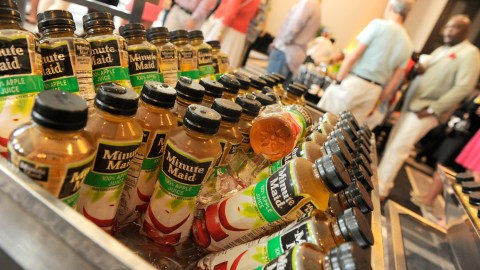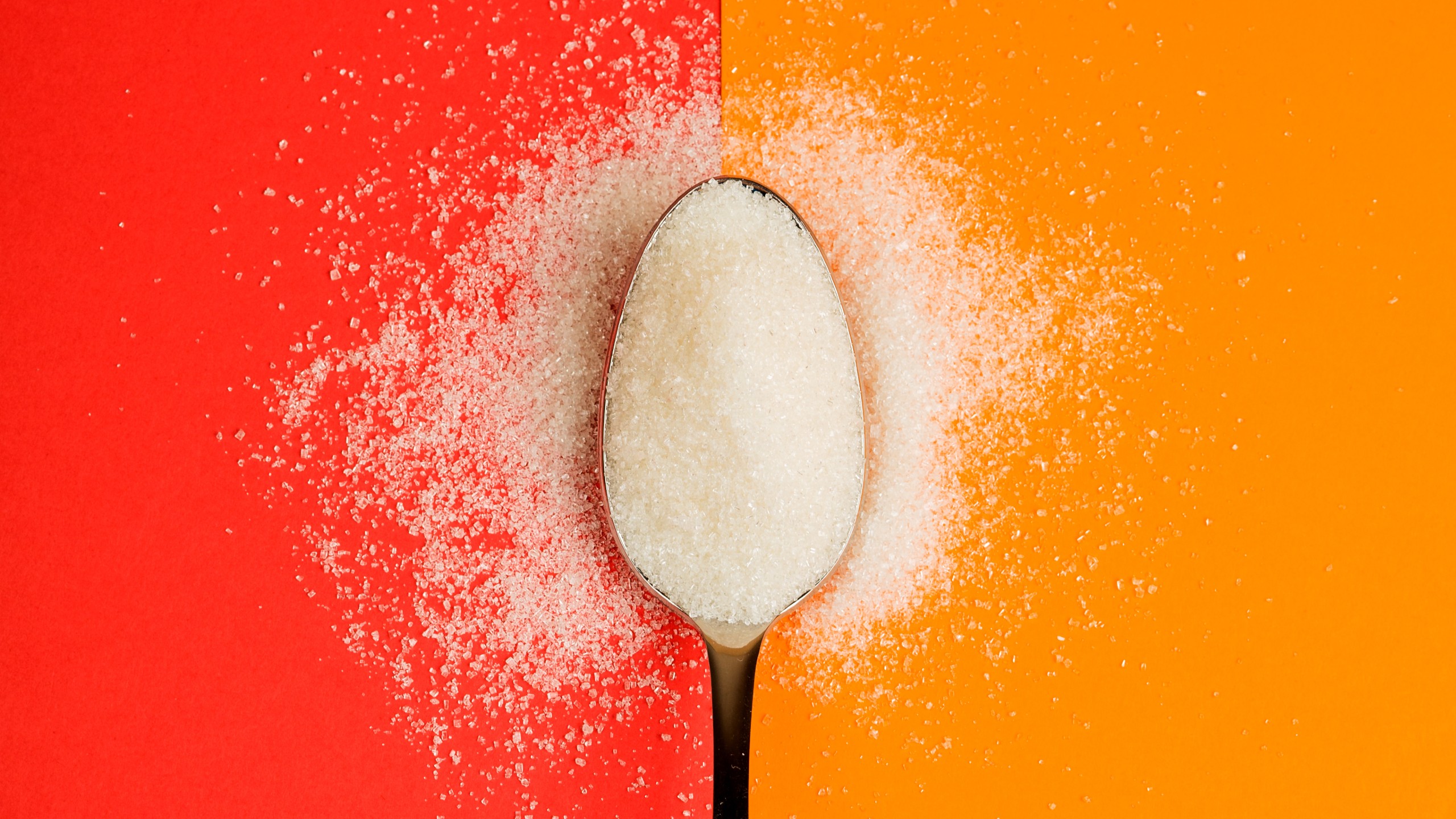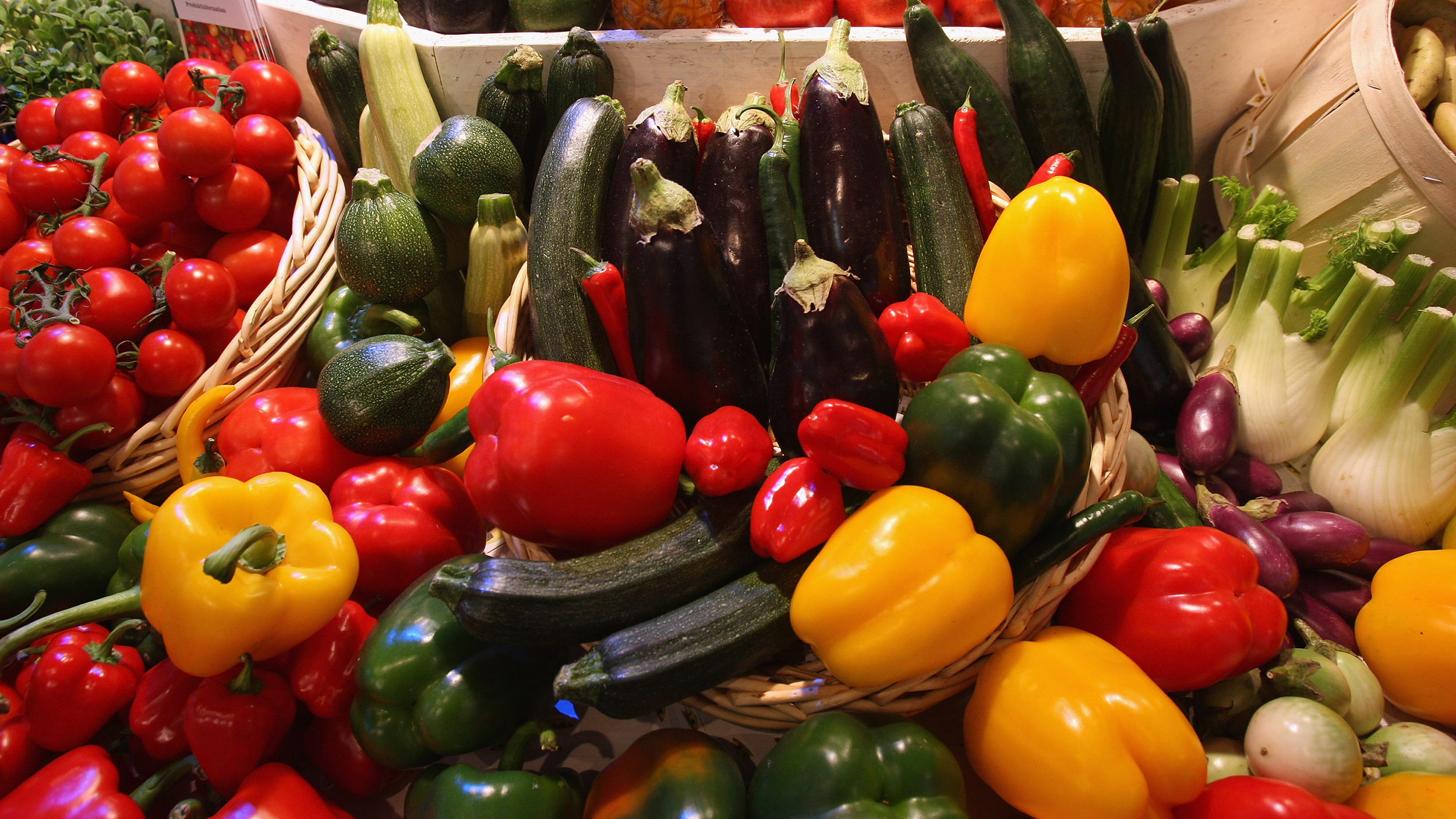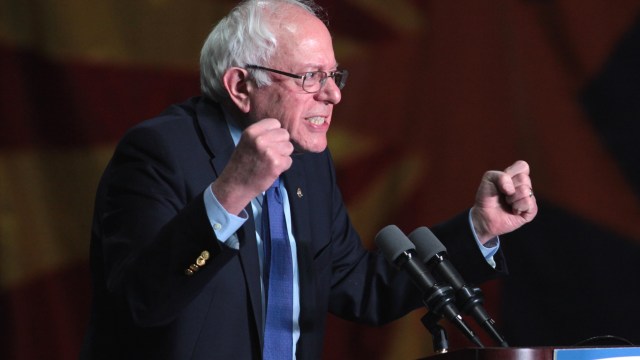Fruit juice may raise cancer risk, study finds. Here’s why.

Photo credit: Sergi Alexander / Getty Images for SOBEWFF®
- The study monitored the health of more than 100,000 adults over a five-year period.
- During this time, some 2,200 people developed cancer, the majority of whom regularly consumed sugary drinks.
- Still, the researchers said the results don’t prove that sugar causes cancer.
A new study found that drinking sugary beverages such as soda and fruit juice may increase your risk of developing cancer. The study, published in the BMJ on July 10, found that consuming sugary drinks was “significantly associated with the risk of overall cancer and breast cancer.” Sugary drinks were defined as those containing more than 5 percent sugar, including soda and 100 percent fruit juice with no added sugar.
For the study, the researchers tracked the health, lifestyle and eating habits of 101,257 adults over a five-year period. During this time, cancer developed in about 2,200 people, the majority of whom regularly consumed sugary drinks.
The findings are some of the first to show a positive association between drinking sugary drinks and cancer. What’s more, this positive association was observed for both soda and100 percent fruit juices.
Still, the results don’t necessarily prove that sugar causes cancer.
“These results need replication in other large scale prospective studies,” the researchers wrote. “They suggest that sugary drinks, which are widely consumed in Western countries, might represent a modifiable risk factor for cancer prevention.”
It’s probably safe to drink soda or fruit juice on occasion, lead researcher Dr. Mathilde Touvier told The Guardian:
“The recommendation from several public health agencies is to consume less than one drink per day. If you consume from time to time a sugary drink it won’t be a problem, but if you drink at least one glass a day it can raise the risk of several diseases — here, maybe cancer, but also with a high level of evidence, cardiometabolic diseases.”
The researchers said the results could help inform future policy decisions. A handful of U.S. cities have levied taxes on the soda industry, including Boulder, Colorado; Philadelphia, Pennsylvania; Seattle, Washington, as well as Albany, Berkeley, Oakland, and San Francisco in California. Generally, distributors and wholesalers pay the tax when they deliver soda to retailers, though it’s expected that consumers also end up paying more in the form of higher retail prices.
These taxes seem to decrease soda consumption. A recent study showed that soda purchases in Philadelphia dropped by 1 billion ounces in 2017, which was the first year of the soda tax.
Does sugar cause cancer?
Although consuming large amounts of sugar has been linked to some forms of cancer, like esophageal cancer, there’s no strong evidence showing that it causes the disease, according to the American Institute for Cancer Research. But there is an indirect link: Eating high-sugar foods often leads to obesity, which, in turn, raises the risk of developing cancer.
To consume less sugar, the institute recommends several strategies:
- switch sodas for flavored sparkling water without added sugar
- opt for unsweetened tea
- add colorful fruit like berries, melon and citrus to your water
- sprinkle cinnamon or cocoa on your coffee beverages and skip the sugar
- carry healthy snacks like nuts, fresh or dried fruit or whole grain crackers and cheese instead of sugary snacks.





